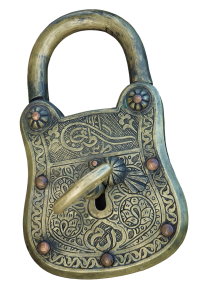Search the Blog
Categories
- Books & Reading
- Broadband Buzz
- Census
- Education & Training
- General
- Grants
- Information Resources
- Library Management
- Nebraska Center for the Book
- Nebraska Libraries on the Web
- Nebraska Memories
- Now hiring @ your library
- Preservation
- Pretty Sweet Tech
- Programming
- Public Library Boards of Trustees
- Public Relations
- Talking Book & Braille Service (TBBS)
- Technology
- Uncategorized
- What's Up Doc / Govdocs
- Youth Services
Archives
Subscribe
Category Archives: Technology
CSLP’s 2019 Teen Video Challenge!
 Looking for an easy program to share with your teens? The 2019 Teen Video Challenge (TVC) sponsored by the Collaborative Summer Library Program (CSLP) has been streamlined to help make participating in this contest easier than ever!
Looking for an easy program to share with your teens? The 2019 Teen Video Challenge (TVC) sponsored by the Collaborative Summer Library Program (CSLP) has been streamlined to help make participating in this contest easier than ever!
[https://www.cslpreads.org/programs/teen-program/2019-teen-video-challenge/] This site contains links to the Official TVC Submission Form, the Complete Contest Rules, and winning videos from years past. Changes with this new approach to the TVC:
- Instead of state winners, there will be 5 national winners. Just have your teens submit a link to their video.
- The program will accept submissions June 1-Aug 2, 2019, so that you can incorporate it into your summer programs (its still a great opportunity to partner with schools with video production classes or clubs; students can produce the videos as a class project and submit them in June!)
- Videos will be limited to 60 seconds, making this a much more doable project for small teams.
- Permission and model release forms will only be required from the winning entries (completing the forms is a requirement to receive prizes and acknowledgement).
- The TVC Ad-Hoc Committee will convene a judging panel from CSLP partners and members.
- Video uploads will not be limited to YouTube and Vimeo; rather, teens can upload to the social media outlet of their choice.
I hope your teens will give it a try!
Posted in Technology, Youth Services
Leave a comment
Pretty Sweet Tech: Makerspace Highlights
I’ve been running around creating makerspace goodness this week, so this is going to be a short post. It’s all about makerspaces and some of the cool things you can get for your makerspace. This is great whether you’re just starting out, or want to spice up your existing offerings:
Merge Cube: This looks like a little foam cube, but it is oh, so much more. Paired with a smartphone, you can overlay amazing 3D images onto this magical little cube. Take a look at the video on Merge Cube’s home page to see it in action. There are ways to use pre-made projects, or to create your own using an app!
 Dash and Dot Robots: These robots are great for kids of all ages. Dash is geared towards kids 6 and up, while Dot is geared for kids 11 and up. But adults can use them too! I’m a big kid now. These robots have plenty of great pre-made curriculum and project ideas too!
Dash and Dot Robots: These robots are great for kids of all ages. Dash is geared towards kids 6 and up, while Dot is geared for kids 11 and up. But adults can use them too! I’m a big kid now. These robots have plenty of great pre-made curriculum and project ideas too!
LEGO Mindstorms: This is a robot that will let you build the actual bot, then program it as well! I train this one for the Innovation Studios grant, so I can answer a bunch of questions about this one. It’s geared towards 8 and up, but it has a lot of flexibility to be hacked by adults too. Good times.
Paper Circuits: If you’re looking for low-cost ways to show the basics of circuitry and electronics, this book is a great place to start. Makerspaces.com also has quite a few other project ideas.
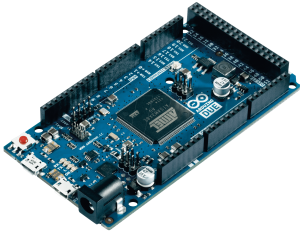 Arduino for Beginners: Makerspaces.com also has this great book showing you everything you need to know about Arduino for beginners. You’ll learn how the board works, some simple circuits, and to interact with the right software.
Arduino for Beginners: Makerspaces.com also has this great book showing you everything you need to know about Arduino for beginners. You’ll learn how the board works, some simple circuits, and to interact with the right software.
There are plenty of other makerspace options out there. But this is a start. I chose mostly all low-cost options. The bigger machines like 3D printers, laser cutters, vinyl cutters, and all that fun stuff are also out there. Feel free to email me at amanda.sweet@nebraska.gov if you have any questions, or would like some recommendations.
Posted in General, Pretty Sweet Tech, Technology
Tagged makerspaces, Pretty Sweet Tech
Leave a comment
Brush Up On NebraskAccess Statewide Databases With NEW Training Videos
Do you feel like your NebraskAccess database-searching skills are getting rusty? Or maybe you’re new to the Nebraska library world and haven’t had a chance to dip into the databases yet? If either scenario sounds familiar, you might want to check out our NEW short training videos. Ten videos are available so far. The shortest video is just under three minutes and the longest is just over fifteen.
Links to these new training videos appear on the Librarian’s Toolbox: Help page:

Links to individual videos also appear on database-specific “About” pages. On the Databases Available to Nebraskans page, click on the question mark icon to the right of a database logo/annotation to access the “About” page for that database:
![]()
If we’ve created a training video for that database, it will appear in the “Help Resources from the Nebraska Library Commission Staff” section of that database’s “About” page:
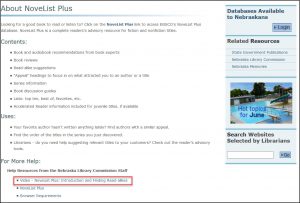
We hope the information and search examples included in these videos will give you an extra boost of confidence when searching and promoting the NebraskAccess databases. Let us know what you think!
Posted in Education & Training, Technology
Leave a comment
Pretty Sweet Tech: DigitalLearn for Digital Skills!
If you have library patrons who are just starting to use computers, or want to learn more about how to use them well, DigitalLearn, made by the Public Library Association (PLA) is a good way to go. They cover everything from why we need computers, to online privacy basics, and tips for buying plane tickets online.
Who Should Use This Resource?
 If you’re wondering who this resource is geared towards, the blurb on top of DigitalLearn’s site says it all: “If you are new to computers, haven’t used them for a while, are a little unsure and uncomfortable, or just need a bit of a refresher, we have the tools to help you tackle technology at your own pace and gain the confidence you need to succeed.”
If you’re wondering who this resource is geared towards, the blurb on top of DigitalLearn’s site says it all: “If you are new to computers, haven’t used them for a while, are a little unsure and uncomfortable, or just need a bit of a refresher, we have the tools to help you tackle technology at your own pace and gain the confidence you need to succeed.”
The site is written in clear, easily understood language. Each tab has a set of short videos, each video has a PDF version, just in case users learn better by reading instead of watching videos. Everybody learns differently. Some of the videos also have additional worksheet exercises users can fill out if they want more guidance on the path towards computing.
How Can Librarians Use This to Help Patrons in Person?
DigitalLearn has several pre-made courses, complete with handouts and materials, for you to teach classes in person at your library. Each section has an Instructor’s Guide, Activity Sheet, and a Handout. Some of the classes have PowerPoint presentations, practice files and a few other things. All in all, these materials will make it a whole lot easier for you to start offering more digital literacy in your library. Without having to take time to create materials from scratch. It’s a win-win!
Nebraska Library Commission’s Upcoming Digital Literacy Class
We’re gearing up for more digital literacy here at the Library Commission as well. The course is still being researched and put together, but if you have any recommendations, feel free to comment on this post, or email amanda.sweet@nebraska.gov.
Posted in Education & Training, Pretty Sweet Tech, Technology
Tagged digital literacy, Pretty Sweet Tech, technology
Leave a comment
NCompass Live: Pretty Sweet Tech – Use Website Building to Launch into Virtual & Augmented Reality!
 Learn how to ‘Use Website Building to Launch into Virtual & Augmented Reality!’ on the next FREE NCompass Live webinar, on Wednesday, June 12, 10:00am-11:00am CT.
Learn how to ‘Use Website Building to Launch into Virtual & Augmented Reality!’ on the next FREE NCompass Live webinar, on Wednesday, June 12, 10:00am-11:00am CT.
New special monthly episodes of NCompass Live! Join the NLC’s Technology Innovation Librarian, Amanda Sweet, as she guides us through the world of library-related Pretty Sweet Tech.
Did you know that building a website can be a great launching pad into virtual and augmented reality? Many libraries are doing Hour of Code and website building activities as an introduction to the wonderful world of coding. But what comes next? What are our goals for learning technology in the future? This webinar will provide you with the following:
- A brief overview of what augmented and virtual reality are, and how they are used
- Some possible roadmaps to start with website development skills (HTML, CSS, Javascript, design, etc.)
- Ways to build off of these web skills to launch into VR and AR
- Some examples of what can come next
This webinar is geared towards the curious and beginner/intermediate coders. It’s time to build a strong foundation for future tech skills. Discover what’s out there.
Upcoming NCompass Live events:
- June 19 – Growing Partnerships Where Least Expected
- July 3 – Pretty Sweet Tech
- July 24 – The Golden Sower Award: Nebraska’s Children’s Choice Literary Award
- July 31 – How Does Your Library Garden Grow?
- Aug. 7 – Life in Fort Schuyler: The Challenges Faced at the SUNY Maritime College Library
- Aug. 14 – Pretty Sweet Tech
- Aug. 21 – Research – the Key to Library Design
- Aug. 28 – Eliminating Late Fines is a Win-Win for Your Library and Community
 For more information, to register for NCompass Live, or to listen to recordings of past events, go to the NCompass Live webpage.
For more information, to register for NCompass Live, or to listen to recordings of past events, go to the NCompass Live webpage.
NCompass Live is broadcast live every Wednesday from 10am – 11am Central Time. Convert to your time zone on the Official U.S. Time website. The show is presented online using the GoToWebinar online meeting service. Before you attend a session, please see the NLC Online Sessions webpage for detailed information about GoToWebinar, including system requirements, firewall permissions, and equipment requirements for computer speakers and microphones.
Posted in Education & Training, Pretty Sweet Tech, Technology
Tagged libraries, NCompLive
Leave a comment
Internet Librarian Conference (Oct 21-23) Discount
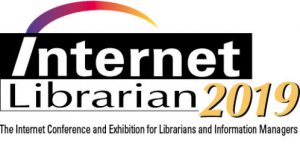 The Nebraska Library Commission is offering a group discount to all librarians in Nebraska who attend the 2019 Internet Librarian Conference. This year it will be held at the Monterey Marriott in Monterey, California on October 21-23, 2019. Detailed information about the conference can be found on the conference web page.
The Nebraska Library Commission is offering a group discount to all librarians in Nebraska who attend the 2019 Internet Librarian Conference. This year it will be held at the Monterey Marriott in Monterey, California on October 21-23, 2019. Detailed information about the conference can be found on the conference web page.
As in the past, InfoToday is offering select groups the opportunity to participate in their Group Discount Program. The Gold Pass is available to groups at the discounted rate of $649 (regularly $819 and the only pass to include preconference workshops). They are also offering a special rate of $399 for the 3-Day Pass (regular rate is $549). (No discount rates are available for the separately priced preconference workshops.)
In addition, the discount rate of $119 (regularly $209) on the Internet@Schools Track is also available.
To receive the discount
- Go to the Internet Librarian 2019 Registration page.
- Click on the Register Now graphic at the top of the page.
- Type priority code 19NLC in the Priority Code field at the top of the form, and click the “Activate Code” button. Discounted rates should appear on the registration form after you successfully activate the code. If you don’t see the discounted rates on the form, please contact Susan Knisely for assistance.
- Complete and submit the online registration form by the September 20th deadline to receive the discounted rates. Rates will go up by $20 after the deadline.
Posted in Education & Training, Technology
Leave a comment
Pretty Sweet Tech: Who Regulates the Internet?
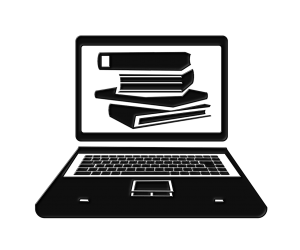 If somebody walked up to your library’s reference desk and asked “who regulates the internet? What if I see something bad?” What would you say?
If somebody walked up to your library’s reference desk and asked “who regulates the internet? What if I see something bad?” What would you say?
Honestly, this is a tough question because the answer varies so much. By and large, there isn’t much regulation from any one governing body in the United States. Let’s dig a little deeper into this idea by breaking it down into smaller categories:
Online Advertising
Ads online are regulated on several levels:
Federal: The Federal Trade Commission has a set of resources available to learn about guidelines, rules, and recommendations for buyers and sellers online.
State: According to Truth in Advertising.org, Nebraska has a Consumer Protection Division through the Office of the Attorney General that files complaints against false advertisements. The also includes a link to Nebraska’s advertising laws.
Self-Regulated: Many website and organizations are also setting their own policies for advertisements on their pages. A thorough example is Google’s Ads Policies.
Online Content
Removing harmful content like fake news, hate speech, instructions for how to perform criminal acts, and other poor online behavior is largely self-regulated from site to site. The internet is a big place and it’s hard for a large regulatory authority to grapple with that much content. Right now it’s most’y up to websites and all of us to self-regulate and report harmful content directly to sites like YouTube, Facebook, or Google.
Access to Internet
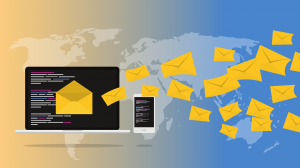 Federal: The Federal Trade Commission has a set of policies in place for access to the internet and how people can be charged for services. These policies only pertain to communications online, like email, VoIP services, and some connectivity issues.
Federal: The Federal Trade Commission has a set of policies in place for access to the internet and how people can be charged for services. These policies only pertain to communications online, like email, VoIP services, and some connectivity issues.
The debate over Net Neutrality has been raging for quite some time. Rather than hash out the whole debate in this post, check out the current state of affairs by looking at the National Conference of State Legislatures’ Net Neutrality 2019 Legislation. There’s a chart on this page that will let you know what Nebraska is doing in comparison to other states. You can also check out this video: BBC What is Net Neutrality?
Summary
The internet is basically a whole other world. Under which regulatory authority would you place internet services? The internet does communication, data collection, advertising, online commerce, and pretty much everything under the sun. Who regulates what?
For now, libraries can start connecting people with existing resources, and start to get people thinking about what they would like to see out of the internet. What helps, and what hurts in the world wide web?
Posted in General, Pretty Sweet Tech, Technology
Tagged internet, Pretty Sweet Tech, technology
Leave a comment
The Public Library’s Role during Elections: Voter Education in the Age of Misinformation
 In a time marked by uncertainty, the public library is in an extraordinary position as one of society’s most trusted institutions. Public libraries can leverage that trust to be at the forefront of voter education as we head into what will be one of the most watched presidential elections of our lifetimes.
In a time marked by uncertainty, the public library is in an extraordinary position as one of society’s most trusted institutions. Public libraries can leverage that trust to be at the forefront of voter education as we head into what will be one of the most watched presidential elections of our lifetimes.
This presentation will equip librarians to gather user-friendly information from reliable and nonpartisan sources, allowing libraries to offer an invaluable, evolving resource tailor-made for their communities. By exploring resources—everything from a glossary of common terms used during elections to campaign finance information—this webinar will help librarians gather the most useful information in addressing their community’s needs. With a focus on citizenship and voting, librarians will learn to serve their diverse populations in a nonthreatening and nonpartisan way. REGISTER NOW
Date: Tuesday, Jun. 4, 2019
Time: 1:00–2:00 p.m. Central Time
Learning Outcomes
At the conclusion of this webinar, participants will be able to:
• Identify the information needs of their communities regarding elections and voter mobilization efforts;
• Identify key stakeholders and audiences to whom they will communicate the importance of their voter education efforts; and
• Curate and design a helpful online resource equipping their communities to be engaged in the voting process.
Presenters:
Haley Samuelson is reference librarian at the Cook Memorial Public Library District serving Lake County, IL. With more than 15 years’ experience in libraries, Haley has worked with patrons of all ages. She also has experience working in at-risk neighborhoods on Chicago’s West Side. Since 2016, she has enjoyed marrying her background in politics with the information needs of her community.
Nate Gass is webmaster and emerging technology librarian at the Cook Memorial Public Library District serving Lake County, IL. In addition to maintaining the library’s website, he has eight years’ experience teaching computer classes and technology topics. Nate also hosts and produces the Cook Memorial Public Library Podcast (https://cooklib.org/podcast) and is a member of the library’s social media team.
Registration Details
Date: Tuesday, Jun. 4, 2019
Time: 1:00–2:00 p.m. Central Time
Cost: The webinar is free, but registration is required. You can register for this webinar until it begins, or until space is no longer available, whichever comes first.
Libraries’ Guide to the 2020 Census
 The American Library Association has released the Libraries’ Guide to the 2020 Census, a new resource to prepare libraries for the decennial count of every person living in the United States.
The American Library Association has released the Libraries’ Guide to the 2020 Census, a new resource to prepare libraries for the decennial count of every person living in the United States.
The Guide contains practical information to assist library staff in addressing potential patron and community requests regarding the upcoming 2020 Census. The Guide includes:
• basic information about the Census process;
• highlights of new components in the 2020 Census, such as the online response option;
• frequently asked questions;
• a timeline of key Census dates;
• contact information and links to additional resources.
ALA teamed with the Georgetown Center on Poverty and Inequality to develop the Guide, with support from ALA’s 2020 Census Library Outreach and Education Task Force. ALA plans to provide additional resources for library practitioners in the months leading up to Census Day on April 1, 2020.
The Libraries’ Guide to the 2020 Census is available for free download at ala.org/census.
NASA MAKES THEIR ENTIRE MEDIA LIBRARY PUBLICLY ACCESSIBLE AND COPYRIGHT FREE
 No matter if you enjoy taking or just watching images of space, NASA has a treat for you. They have made their entire collection of images, sounds, and video available and publicly searchable online. It’s 140,000 photos and other resources available for you to see, or even download and use it any way you like.
No matter if you enjoy taking or just watching images of space, NASA has a treat for you. They have made their entire collection of images, sounds, and video available and publicly searchable online. It’s 140,000 photos and other resources available for you to see, or even download and use it any way you like.
You can type in the term you want to search for and browse through the database of stunning images of outer space. Additionally, there are also images of astronauts, rocket launches, events at NASA and other interesting stuff. What’s also interesting is that almost every image comes with the EXIF data, which could be useful for astrophotography enthusiasts.
When you browse through the gallery, you can choose to see images, videos or audio.  Another cool feature I noticed is that you can narrow down the results by the year. Of course, I used some of my time today to browse through the gallery, and here are some of the space photos you can find:
Another cool feature I noticed is that you can narrow down the results by the year. Of course, I used some of my time today to browse through the gallery, and here are some of the space photos you can find:
 What I love about NASA is that they make interesting content for average Internet users. They make us feel closer and more familiar with their work and with the secrets of the outer space. For instance, they recently launched a GIPHY account full of awesome animated gifs. It’s also great that photography is an important part of their missions, and so it was even before “pics or it didn’t happen” became the rule. The vast media library they have now published is available to everyone, free of charge and free of copyright. Therefore, you can take a peek at the fascinating mysteries of space, check out what it’s like inside NASA’s premises, or download the images to make something awesome from them. Either way, you’ll enjoy it!
What I love about NASA is that they make interesting content for average Internet users. They make us feel closer and more familiar with their work and with the secrets of the outer space. For instance, they recently launched a GIPHY account full of awesome animated gifs. It’s also great that photography is an important part of their missions, and so it was even before “pics or it didn’t happen” became the rule. The vast media library they have now published is available to everyone, free of charge and free of copyright. Therefore, you can take a peek at the fascinating mysteries of space, check out what it’s like inside NASA’s premises, or download the images to make something awesome from them. Either way, you’ll enjoy it!
Courtesy of
THIS WEEK: Saving Your Family Treasures Workshop
 Saving Your Family Treasures Workshop is a workshop that provides information on how to preserve damaged personal heirlooms after natural disasters. The workshop is free and open to the public.
Saving Your Family Treasures Workshop is a workshop that provides information on how to preserve damaged personal heirlooms after natural disasters. The workshop is free and open to the public.
Saturday, June 1, 2019: 10:30 am – 12:00 noon CST
The Durham Museum
801 South 10th Street
Omaha, NE 68108
When homes are flooded and lives upended, treasured possessions such as family heirlooms, photos, and other keepsakes become more cherished. Even in the aftermath of a disaster, these treasures may be salvageable. Smithsonian affiliate The Durham Museum has teamed up with the Smithsonian Cultural Rescue Initiative to host a second free workshop providing information on how to preserve damaged personal heirlooms after natural disasters.
Experts will demonstrate how to handle, dry, and clean damaged objects and share tips on personal safety, setting priorities, and other preservation options. There will be a formal presentation followed by a question and answer period.
The workshop will have examples of common personal heirlooms on display to demonstrate salvaging techniques. ***DUE TO SAFETY CONCERNS*** please do not bring your damaged objects to the workshop. If you have specific questions about your personal heirlooms, feel free to bring images of each item to discuss with the preservation experts directly.
THIS WEEK: Training Seminar for Cultural Heritage Professionals
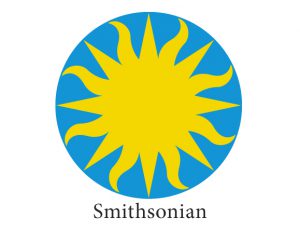 Cultural heritage professionals from across the region are invited for a training workshop for post‐disaster community engagement.
Cultural heritage professionals from across the region are invited for a training workshop for post‐disaster community engagement.
“Strategies for Post-Disaster Community Engagement Workshop”
When homes are damaged and lives are upended, treasured keepsakes such as artwork, photos, personal papers, and other family heirlooms become more cherished. Even in the aftermath of a disaster, these treasures may be salvageable. Cultural institutions can provide important information to communities to preserve their possessions as they regain access to their homes and businesses. On May 31, the Smithsonian Institution’s experts will be onsite and online at The Durham Museum to provide a workshop exclusively for cultural heritage professionals. They will conduct a “train‐the-trainer”
session with the hope that institutions will host workshops in their own communities to most directly help those recovering from the recent historic flooding.
Friday, May 31 from 1:00 p.m. – 3:00 p.m. CST
The Durham Museum
Criss Conference Center,
801 S. 10th Street,
Omaha, NE
The workshop will be live-streamed through ZOOM video-conference software for those unable to attend onsite.
Presented by The Smithsonian Cultural Rescue Initiative, in collaboration with The Durham Museum in Omaha.
Register by emailing Carrie Meyer at cmeyer@durhammuseum.org and indicate ZOOM or onsite participation.
Pretty Sweet Tech: Is Your Website Mobile Friendly?
Think about the last time you checked the hours of a business. Were you at home or running around town? Were you on a mobile device? Do you have a smartphone?
Statista.com shows that 48.71% of all web traffic comes from a mobile device. That number is estimated to climb higher in coming years. For this reason, many companies are adopting what they call “mobile first” strategies. This means they are optimizing their websites for smartphone screens and tablets. Sadly, this also means it may get harder for people without smartphones to access the information they need. Times are changing, and in some ways not for the better.
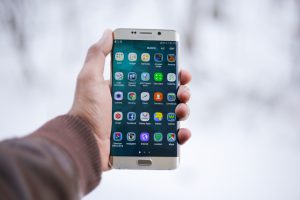 This also means libraries will have to adapt to stay relevant in a mobile-first world. Library customers are used to user experiences on Amazon, Google, and large department stores. If our library websites don’t have the same visual appeal, they probably won’t stay long. New customers will also be less likely to take action and come into the library.
This also means libraries will have to adapt to stay relevant in a mobile-first world. Library customers are used to user experiences on Amazon, Google, and large department stores. If our library websites don’t have the same visual appeal, they probably won’t stay long. New customers will also be less likely to take action and come into the library.
So what can we do? If you’re familiar with web development, start by looking into responsive design and fluid layout as a way to make mobile-first happen. This will allow your content to automatically detect the size of the screen and display content properly. Just make sure your font sizes are legible and your objects are a good size for adult fingertips to activate. There are other ways to do this, including building a separate design for popular screen sizes, but that takes a lot more time and energy to maintain.
Mobile-first means we build for mobile, then make sure it works for desktop, rather than designing for desktop screens and hoping for mobile. If users have to scroll from side to side a lot, or zoom in and out to navigate and read text, they won’t stay on your site long. Next time you visit a website on your phone, think about why it works or doesn’t work for you, and why you click away. Stick with what works for your library.
 But what if you’re not a developer, or don’t have that kind of time? Luckily, all you need are the right tools! WordPress is a great content management solution that makes it quick and easy to set up and maintain websites. Google “best responsive WordPress themes”. Choose one, make a quick test site, then hop on your mobile device and take it for a test drive. Can you read the text without zooming much? Can you click buttons without zooming, or missing the button? Is the navigation menu easy to use?
But what if you’re not a developer, or don’t have that kind of time? Luckily, all you need are the right tools! WordPress is a great content management solution that makes it quick and easy to set up and maintain websites. Google “best responsive WordPress themes”. Choose one, make a quick test site, then hop on your mobile device and take it for a test drive. Can you read the text without zooming much? Can you click buttons without zooming, or missing the button? Is the navigation menu easy to use?
If that seems easier said than done, give me a call and we can walk through the steps of mobile-first design for your library’s website. If you already go through Nebraska Libraries on the Web, I can help you find a new, more responsive WordPress theme. If you want to make the switch, let me know at amanda.sweet@nebraska.gov.
To learn more about Mobile-first design, check out these resources:
Responsive, Mobile-First Design Matters Now More Than Ever (Intertech)
2019 Web Design Trends (Ironistic)
Posted in General, Pretty Sweet Tech, Technology
Tagged technology, web development, website design, WordPress
Leave a comment
NCompass Live: A Conversation with Nebraska’s New State Poet, Matt Mason
 You’re invited to join us on this Wednesday’s FREE NCompass Live webinar as we chat with Nebraska’s New State Poet, Matt Mason. Matt will discuss how the Nebraska State Poet can work with libraries and schools to promote and encourage appreciation of poetry and literary life in Nebraska.
You’re invited to join us on this Wednesday’s FREE NCompass Live webinar as we chat with Nebraska’s New State Poet, Matt Mason. Matt will discuss how the Nebraska State Poet can work with libraries and schools to promote and encourage appreciation of poetry and literary life in Nebraska.
Along with Nebraska Library Commission Director Rod Wagner and Communication Coordinator Tessa Terry, we will also be joined by Erika Hamilton, Director of Literary Programs at Humanities Nebraska; selection committee member, Chuck Peek; and Brad Modlin, Reynolds Chair of Poetry at the University of Nebraska Kearney.
Upcoming NCompass Live events:
- May 22 – Picture Book City: Reorganizing Our Storybooks by Subject
- May 29 – Let’s Get Real About Virtual Reality
- June 5 – Providing Passports at Your Library
- July 24 – The Golden Sower Award: Nebraska’s Children’s Choice Literary Award
- Aug. 28 – Eliminating Late Fines is a Win-Win for Your Library and Community
 For more information, to register for NCompass Live, or to listen to recordings of past events, go to the NCompass Live webpage.
For more information, to register for NCompass Live, or to listen to recordings of past events, go to the NCompass Live webpage.
NCompass Live is broadcast live every Wednesday from 10am – 11am Central Time. Convert to your time zone on the Official U.S. Time website. The show is presented online using the GoToWebinar online meeting service. Before you attend a session, please see the NLC Online Sessions webpage for detailed information about GoToWebinar, including system requirements, firewall permissions, and equipment requirements for computer speakers and microphones.
Posted in Education & Training, Technology, Youth Services
Tagged GoldenSowerAward, libraries, NCompLive
Leave a comment
FREE PLA Webinar : Measuring the Success of Health Programs and Services
![]() Public libraries are critical to their community’s health, serving as a go-to resource for individuals to access current and reliable health information. Public library staff have a deep understanding of the unique needs of their communities and the value of serving their patrons’ health needs. Now all they need is the data to prove just how valuable those services are. In this webinar, participants will learn how Project Outcome’s new health survey will help public libraries measure the success of health programs and services. Participants will also discover helpful resources and training tools to enhance their health services. REGISTER NOW!
Public libraries are critical to their community’s health, serving as a go-to resource for individuals to access current and reliable health information. Public library staff have a deep understanding of the unique needs of their communities and the value of serving their patrons’ health needs. Now all they need is the data to prove just how valuable those services are. In this webinar, participants will learn how Project Outcome’s new health survey will help public libraries measure the success of health programs and services. Participants will also discover helpful resources and training tools to enhance their health services. REGISTER NOW!
The Project Outcome health survey was developed in partnership with the National Network of Libraries of Medicine (NNLM), dedicated to advancing the progress of medicine and improving public health. To learn more, visit https://nnlm.gov/.
At the conclusion of this webinar, participants will:
- Know resources and training tools to help create and improve health services at their library;
- Understand how to measure the outcomes of their health-related programs using Project Outcome’s new health survey; and,
- Be able to apply survey data for decision making and action.
Presenter:
Emily Plagman, manager of impact and advocacy, manages PLA’s performance measurement initiative, Project Outcome. Prior to joining PLA, Emily worked as a project manager at the Chicago Metropolitan Agency for Planning on an energy efficiency grant. Emily received her Master’s in International Public Affairs from the LaFollette School of Public Affairs at the University of Wisconsin and her Bachelor’s in Political Science at Marquette University.
REGISTRATION DETAILS:
Date: Wednesday, May 29, 2019
Time: 1:00–2:00 p.m. Central Time
Cost: The webinar is free, but registration is required. You can register for this webinar until it begins, or until space is no longer available, whichever comes first.
2020 Census: Key Roles for Libraries
 In 2020, the Census will be conducted primarily online for the first time. Like past e-government efforts, this will likely impact libraries and libraries’ technology resources as staff work to assist people in participating in the Census. The 2020 Census also presents an opportunity to increase public awareness and use of Census data. To best position libraries to support our communities in the 2020 Census, ALA is engaging with the Census Bureau and other stakeholders to ensure that libraries are informed and represented in the policy discussions and planning process. ALA is advocating for a fair, accurate, and inclusive Census that recognizes the roles libraries will play in this vital civic effort.
In 2020, the Census will be conducted primarily online for the first time. Like past e-government efforts, this will likely impact libraries and libraries’ technology resources as staff work to assist people in participating in the Census. The 2020 Census also presents an opportunity to increase public awareness and use of Census data. To best position libraries to support our communities in the 2020 Census, ALA is engaging with the Census Bureau and other stakeholders to ensure that libraries are informed and represented in the policy discussions and planning process. ALA is advocating for a fair, accurate, and inclusive Census that recognizes the roles libraries will play in this vital civic effort.
Want to stay up-to-date on our work to prepare for the 2020 Census? Subscribe to ALA’s Census newsletter.
Why the Census is Important
- Representation: The decennial count of all U.S. residents is required by the U.S. Constitution to determine representation in Congress and the Electoral College (known as reapportionment). This data is also the basis for drawing districts for federal, state, and local offices (known as redistricting).
- Funding: The Census is key to the allocation of billions of dollars in federal funding to states and localities (such as grants to states under the Library Services and Technology Act).
- Information: Data resulting from the Census is widely used by researchers, governments, businesses, and other organizations (to, for example, plan for library services).
Key Roles for Libraries
- Partners in E-Government: In 2020, the Census Bureau for the first time will encourage residents to complete the Census questionnaire online, starting in March 2020. Like past e-government efforts, this likely will place additional demands on library staff and technology resources to enable people to complete the Census questionnaire. (Other response methods will also be available.) Libraries can use their experience partnering with government to assist their communities in achieving a fair, accurate, and inclusive count.
- Education and Community Outreach: Libraries have the opportunity to educate their communities about the Census. In the 2010 Census, more than 6,000 library locations hosted Census Bureau outreach activities.
- Public Spaces: Census Bureau field staff often utilize community rooms in libraries as affordable temporary workspaces, such as for staff hiring and training. Other community stakeholders may also use library meeting rooms to host events related to the 2020 Census.
Advocacy for a Fair, Accurate, and Inclusive Census
- Coalition letter regarding to the Commerce, Justice, Science, and Related Agencies Appropriations subcommittees regarding FY2020 funding for the Census Bureau (April 16, 2019
- Testimony to the House Commerce Appropriations Subcommittee regarding funding for the 2020 Census (April 4, 2019)
- The Scoop: “ALA Joins Group Opposing Census Citizenship Question: Supreme Court Argument will be Heard April 23.” (April 2, 2019)
- Amicus curiae brief of ALA, et al., in the Supreme Court of the United States, Department of Commerce v. State of New York, regarding a citizenship question on the 2020 Census (April 1, 2019)
- Coalition letter to the U.S. Census Bureau on recommendations for Questionnaire Assistance Centers for the 2020 Census (March 19, 2019)
- Washington Hotline: “Libraries Can Ensure Everyone Counts in 2020 Census” (February, 2019)
- Letter to the U.S. Census Bureau regarding Questionnaire Assistance Centers for the 2020 Census (February 22, 2019)
- The Scoop: “Census Resources for Libraries: Help Achieve a Complete Count in 2020.” (January 15, 2019)
- Letter to the House and Senate Appropriations Committees urging funding for Questionnaire Assistance Centers in the 2020 Census (December 7, 2018)
- The Scoop: “Libraries and the 2020 Census: Workshops Prepare Librarians for Taking a Complete Count.” (October 30, 2018)
- The Scoop: “Getting Ready for the 2020 Census: Partnering with Complete Count Committees.” (September 11, 2018)
- The Scoop: “ALA Urges Commerce Department to Reject Census Citizenship Question.” (August 9, 2018)
- Comments to the Census Bureau regarding information collection in the 2020 Census (August 6, 2018)
- Coalition comments to the Census Bureau regarding information collection in the 2020 Census (August 1, 2018)
- Coalition Letter to the Senate Commerce, Justice, Science Appropriations Subcommittee regarding FY 2019 funding for the Census Bureau (June 4, 2018)
- District Dispatch: Gearing up for the 2020 Census (April 4, 2018)
- Coalition Letter to the House and Senate Commerce, Justice, Science Appropriations Subcommittees regarding FY 19 funding for the Census Bureau (May 1, 2018)
- Coalition Letters to the House Committee on Oversight and Government Reform and Senate Committee on Homeland Security and Governmental Affairs regarding a citizenship question on the 2020 Census (April 12, 2018)
- Coalition Letter to the Commerce Department opposing the addition of a citizenship question to the 2020 Census (January 10, 2018)
Learn More
- 2020 Census Technology FAQs – frequently asked technical and security questions regarding the 2020 census (CensusCounts.org)
- 2020 Census (U.S. Census Bureau)
- 2020 Census Operational Timeline (U.S. Census Bureau)
- Complete Count Committees (U.S. Census Bureau)
- Census Regional Offices – to contact the Census Bureau staff in your community (U.S. Census Bureau)
- Counting Everyone in the Digital Age: The Implications of Technology Use in the 2020 Decennial Census for the Count of Disadvantaged Groups (Leadership Conference Education Fund and Georgetown Center on Poverty and Inequality, Fall 2017)
- Census 2020 Hard to Count Map (City University of New York Center for Urban Research)
- Public libraries across the United States are planning to play an active role in the 2020 Census (City University of New York Center for Urban Research)
Courtesy of the American Library Association: http://www.ala.org/advocacy/govinfo/census
Countdown to the 2020 Census
 What Is the 2020 Census?
What Is the 2020 Census?
The 2020 Census counts every person living in the United States and five U.S. territories—once, only once, and in the right place. This census is conducted every 10 years by the U.S. Census Bureau, a nonpartisan government agency.
Why We Do It
The results of the census determine your congressional representation as well as federal funding for states and communities. Every year, more than $675 billion goes toward hospitals, fire departments, schools, roads, and more.
It’s also mandated by the Constitution: The United States has counted its population every 10 years since 1790.
When You Can Take the 2020 Census
By April 1, 2020, households will receive an invitation to participate in the 2020 Census. You’ll then have three ways to respond: online, by phone, or by mail.
You can find a detailed timeline for 2020 Census activities here.
And for the first time ever, you’ll be able to respond to the census online! Sign up below for a reminder to complete the 2020 Census.
Everyone Must Complete the 2020 Census
If you live in the United States, you are required by law to participate in the 2020 count, even if you recently completed another survey from the Census Bureau. A complete and accurate count is critical, as the results of the 2020 Census will affect congressional representation, community funding, and more.
Posted in Census, Education & Training, General, Information Resources, Technology, Uncategorized, What's Up Doc / Govdocs
Tagged census
Leave a comment
Pretty Sweet Tech: Smart Device Security
What if someone hacked your smart device and started talking to your baby through a baby monitor? It’s chilling, but it happened in Detroit. Smart homes are the cool new thing, but how do we secure our homes in a digital world?
Possibilities of Using Smart Devices
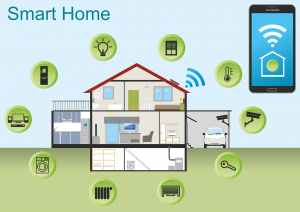 Some of you may have an Amazon Echo or another smart device nestled quietly in our living room. Other hardware can connect through Wi-Fi through a central smart device and you can control your home through voice commands or an app.
Some of you may have an Amazon Echo or another smart device nestled quietly in our living room. Other hardware can connect through Wi-Fi through a central smart device and you can control your home through voice commands or an app.
There are smart thermostats, security cameras, baby monitors, webcams, alarm clocks, home security systems, lighting, vacuums, and more. Much more. This opens the door to some infinitely powerful opportunities. Possibly more smart libraries too!
Possible Risks of Using Smart Devices
Now onto the part nobody wants to know about: how can we get hacked?
Norton, a company that specializes in digital security, wrote 12 Tips to Help Secure Your Smart Home and IoT Devices. This article describes some common ways cybercriminals can hack into your smart devices:
- Router Hack: Cybercriminals can infect your router using malicious software, then sneak into your system through the backend.
- Security Cameras: Unsecured network connections linked to a security camera can allow access points for cybercriminals to spy on you through your camera.
- Data Misuse: Devices like your thermostat collect data about your home to run more efficiently. Unauthorized access to this data can allow cybercriminals to guess when you’re not home to break into your physical location.
I’ll leave it at those few examples for now. You can check out the article to learn more.
Smart Device Security
Now for the most important part. What can we do about this?
- Routers: This is something most consumers don’t think about. Here’s an article with more information about how to secure your wireless router at home.
- Firewall the Network: It’s hard to secure individual devices. But here is some more information about how to further secure your network and add firewalls.
- Strong Passwords: Check out the article above about using strong passwords to further secure your devices and data.
- Data Misuse: All the data collected by these devices has to go somewhere. It is stored and used by the company that made the device. Here is an article from the Institute of Electrical and Electronics Engineers (IEEE) describing data concerns when developing IoT. Remember to look at data policies from your devices.
Have fun with your Smart Devices. Remember to do all you can to keep yourselves safe. With great power comes great responsibility!
Posted in General, Pretty Sweet Tech, Technology
Leave a comment
NCompass Live: Small Libraries Can Run Code Clubs for Kids
 Find out how ‘Small Libraries Can Run Code Clubs for Kids’, with tips from O’Neill Public Library, on the next FREE NCompass Live webinar on Wednesday, May 8, 10:00am – 11:00am CT.
Find out how ‘Small Libraries Can Run Code Clubs for Kids’, with tips from O’Neill Public Library, on the next FREE NCompass Live webinar on Wednesday, May 8, 10:00am – 11:00am CT.
Running a code club at your library can be really intimidating – especially if you don’t know how to code! Prenda has helped hundreds of small libraries start and run thriving code clubs where kids are learning how to make websites, video games, apps, and animations using the resources you probably already have! And as a special treat, we’ll hear from Jeannie Mejstrik who is has been running an incredible club since 2017 at O’Neill (NE) Public Library, where their population is under 5,000.
Presenter: Luke Miller, Director of Customer Success, Prenda.
Upcoming NCompass Live events:
 May 15 – A Conversation with Nebraska’s New State Poet, Matt Mason
May 15 – A Conversation with Nebraska’s New State Poet, Matt Mason- May 22 – Picture Book City: Reorganizing Our Storybooks by Subject
- May 29 – Let’s Get Real About Virtual Reality
- June 5 – Providing Passports at Your Library
- July 24 – The Golden Sower Award: Nebraska’s Children’s Choice Literary Award
- Aug. 28 – Eliminating Late Fines is a Win-Win for Your Library and Community
For more information, to register for NCompass Live, or to listen to recordings of past events, go to the NCompass Live webpage.
NCompass Live is broadcast live every Wednesday from 10am – 11am Central Time. Convert to your time zone on the Official U.S. Time website. The show is presented online using the GoToWebinar online meeting service. Before you attend a session, please see the NLC Online Sessions webpage for detailed information about GoToWebinar, including system requirements, firewall permissions, and equipment requirements for computer speakers and microphones.
Posted in Education & Training, Technology, Youth Services
Tagged GoldenSowerAward, libraries, NCompLive
Leave a comment
FREE 2019 Summer of Space Learning Program!
 In the summer of 2019, 16,000 libraries across the country will celebrate space exploration in their summer reading programs. The slogan “A Universe of Stories” was chosen by library professionals to help inspire children of all ages to dream big, believe in themselves, and create their own story. The Collaborative Summer Learning Program and STAR Net are partnering to share STEM resources with these libraries.
In the summer of 2019, 16,000 libraries across the country will celebrate space exploration in their summer reading programs. The slogan “A Universe of Stories” was chosen by library professionals to help inspire children of all ages to dream big, believe in themselves, and create their own story. The Collaborative Summer Learning Program and STAR Net are partnering to share STEM resources with these libraries.
This summer learning program will coincide with NASA’s 60 years of achievement and its celebration of the 50th anniversary of the Apollo 11 Moon Landing.
This is a free program funded primarily by NASA’s Science Mission Directorate. All giveaways, resources, and activities are available at no cost.
In order to participate, your library must be a public library within the United States and register at: https://www.surveymonkey.com/r/universe-of-stories-registration
The 2019 Summer of Space campaign does not require a paid subscription. You will, however, receive one newsletter a month highlighting resources.
You can register multiple libraries and branches in your system separately, providing an email address and point of contact for each.
The benefits of registering are: Access to STAR Net’s webinar series, a chance to win everything from a telescope, tactile books, and Scholastic books to NASA Stickers and calendars. New and exciting activities that connect well with A Universe of Stories and blogs highlighting events and competitions around the U.S.
Be sure to visit http://www.starnetlibraries.org/summer-of-space/ for more information and programming resources.
ALSO, SAVE THE DATE!
On Monday, July 15th, join us for a Live Webcast Event to celebrate the 50th anniversary of the Apollo 11 Mission. This live webcast, brought to you by the American Museum of Natural History, will feature a guided recreation of the Apollo 11 voyage – the space-flight that landed the first two astronauts on the Moon.
Note: More info will be available in future newsletters.
